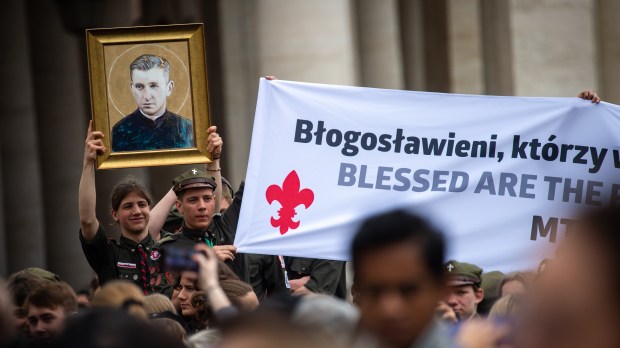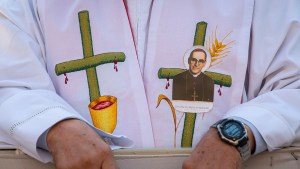The Catholic Church has a long process in place that examines the life of an individual to determine if they lived a life of extraordinary virtue that should be lifted up for all to imitate.
One of first major steps along that path is called the beatification ceremony.
The word itself stems from the Latin word beatus, meaning “blessed” and facere, “to make.” To beatify is simply the act of declaring an individual “blessed.”
In order to be beatified (the last step before being canonized), an individual needs to have one miracle attributed to their intercession.
Typically throughout the beatification process, the local bishop will promote an individual’s cause among the faithful and encourage them to pray through that person’s intercession.
One of the most common type of miracles is the sudden healing of someone. According to author Michael O’Neill, “For the cure to be considered miraculous, the disease must be serious and impossible (or at least very difficult) to cure by human means and not be in a stage at which it is liable to disappear shortly by itself. No medical treatment must have been given, or it must be certain that the treatment given has no reference to the cure. The healing must be spontaneous, complete and permanent.”
It can take many years before a miracle is verified by the Vatican, as there are hundreds of cases being submitted every year. Not all of them are miracles and so the Vatican has to weed them out, determining which ones are authentic and which ones are not.
Furthermore, when an individual is beatified, this typically authorizes the local diocese(s) to celebrate their life and they are included on a few liturgical calendars.
Only when an individual is canonized are they approved for widespread veneration.
The beatification ceremony is not meant to be a reward for certain men or women after their death, but a public confirmation of their saintly life and union with God.


